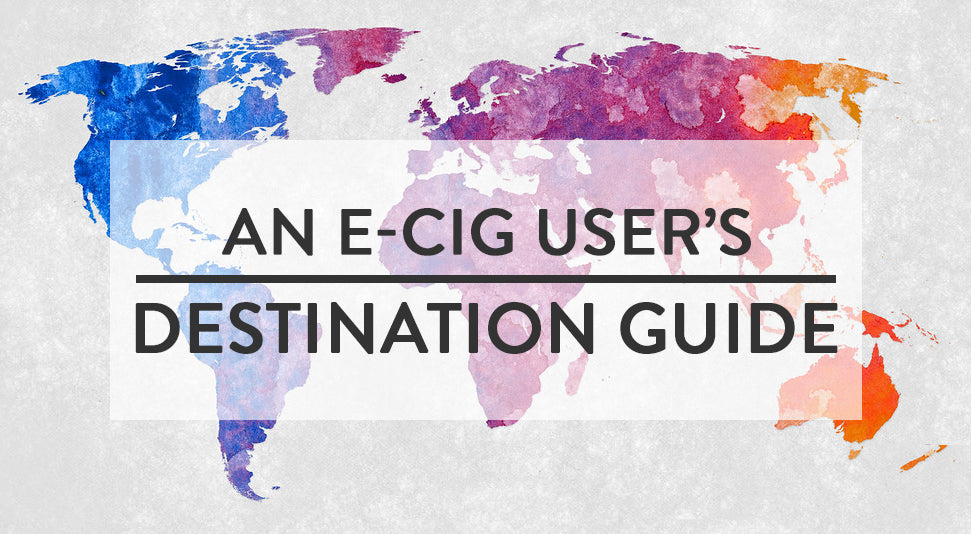The definitive vaping destination guide
Aug 25, 2017

There's enough to think about and plan when going on holiday without worrying about whether you'll be free to vape or not. You may have your flip-flops and swimming shorts all packed and ready to go, but have you considered the laws and regulations in which you need to adhere to while you’re away?
As many of you will already know, the rules on vaping vary from country to country and the laws are often unclear, leaving us confused and in limbo. There are a number of countries where vaping in public is 100% permitted and there are some where the rules are unclear since no legislation has been put in place. Unfortunately, there are countries where vaping is completely banned and breaking these rules could land you with a hefty fine or even a prison sentence.
The Laws
Many of the laws that restrict electronic cigarette usage apply specifically to the manufacture, import and sale of e-cigarettes, yet some restrict use altogether.
In many cases, how strictly the law is upheld is inconsistent and uncertain. For example, it’s not uncommon for users to get ecigs through customs and use them in a country where it’s banned, without facing a penalty.
To help clear things up, we’ve created a list of locations stating whether vaping is or isn’t permitted – along with everything in between.
As of March 2020:
100% Banned
- Argentina
- Bahrain
- Brazil
- Brunei
- Cambodia
- Colombia
- India
- Indonesia
- Jordan
- Malaysia
- Mexico
- Oman
- Panama
- Qatar
- Singapore
- South Korea
- Taiwan
- Thailand
- Turkey
- Uruguay
- Venezuela
- United Arab Emirates
- Australia
- Belgium
- Denmark
- France
- Finland
- Hong Kong
- Hungary
- Japan
- New Zealand
- Norway
- South Africa
- Sweden
- Switzerland
Here is a list of countries where vaping is permitted:
- Canada
- China
- Costa Rica
- Czech Republic
- Estonia
- European Union
- Germany
- Israel
- Italy
- Ireland
- Korea Latvia
- Malta
- Netherlands
- Poland
- Russia
- Tajikistan
- Ukraine
- UK
- USA
There are some countries that still do not clearly state whether vaping is or isn’t permitted, including Greece, Iran and Mauritius. If in doubt, do not take your vaping kit with you. The fines and prison time is just not worth it.
If you do find yourself in trouble, please follow these steps:
- Assist law enforcement with any requests.
- Find and contact the closest UK Embassy (or ask a relative to do so).
- Notify your travel agent.





Leave a comment